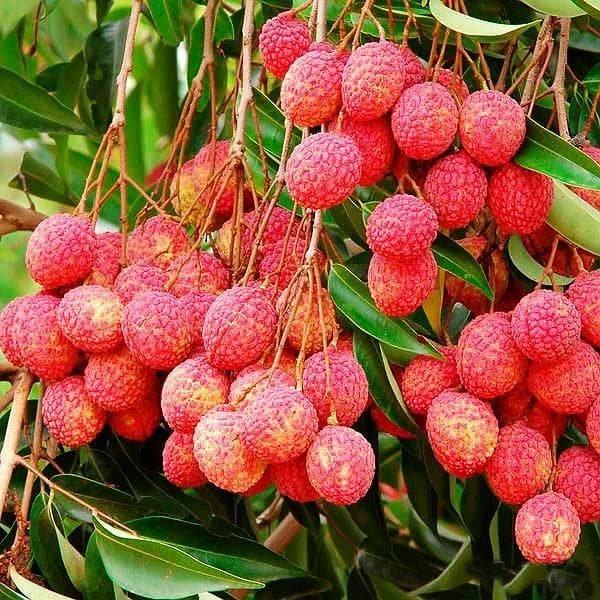Bihar Switch to Hindi
Expansion of Litchi Cultivation Across India
Why in News?
The cultivation of Litchi, traditionally restricted to Muzaffarpur Bihar, has witnessed a significant expansion across 19 Indian states, highlighting the Horticulture boost in India.
- This development stems from the efforts of the National Research Centre on Litchi (NRCL) based in Muzaffarpur, Bihar.
What are the Key Facts about Litchi?
- Botanical Classification: Litchi belongs to the Sapindaceae family and is known for its delicious, juicy, translucent aril or edible flesh.
- Climatic Requirements: Litchi thrives in sub-tropical climates and prefers moist conditions. It grows best in regions with low elevation, up to an altitude of around 800 meters.

- Soil Preference: The ideal soil for litchi cultivation is deep, well-drained loamy soil rich in organic matter.
- Temperature Sensitivity: Litchi is sensitive to extreme temperatures. It does not tolerate temperatures above 40.5 degrees Celsius in summer or freezing temperatures in winter.
- Rainfall Impact: Prolonged rain, especially during flowering, can interfere with pollination and affect the crop adversely.
- Geographical Cultivation: In India, the commercial cultivation was traditionally restricted to the north in the foot hills of Himalayas from Tripura to Jammu & Kashmir and plains of Uttar Pradesh and Madhya Pradesh.
- But due to increased demand and viability, cultivation has expanded to states like Bihar, Jharkhand, and Chhattisgarh.
- Bihar alone accounts for nearly 40% of India’s litchi production. Bihar is followed by West Bengal (12%) and Jharkhand (10%).
- Global Production: India ranks as the second largest producer of litchi globally, following China. Other significant litchi-producing countries include Thailand, Australia, South Africa, Madagascar, and the United States.
Horticulture
- About:
- Horticulture refers to the science, art, and practice of cultivating fruits, vegetables, flowers, ornamental plants, and other crops.
- It encompasses a broad spectrum of activities related to plant cultivation, management, propagation, and improvement for human use and enjoyment.
- Initiatives for Horticulture:
- Mission for Integrated Development of Horticulture (MIDH):
- MIDH is a Centrally Sponsored Scheme for the holistic growth of the horticulture sector covering fruits, vegetables and other areas.
- Under MIDH, Government of India contributes 60% of the total outlay for developmental programmes in all the states (except North Eastern and Himalayan states where GOI contributes 90%) & 40% is contributed by State governments.
- Horticulture Cluster Development Programme:
- It is a central sector programme aimed at growing and developing identified horticulture clusters to make them globally competitive.
- Horticulture cluster is a regional/geographical concentration of targeted horticulture crops.
- Mission for Integrated Development of Horticulture (MIDH):








%20MPPCS%202025%20Desktop%20E.jpg)
%20MPPCS%202025%20Mobile%20E%20(1).jpg)










.png)
.png)











 PCS Parikshan
PCS Parikshan

